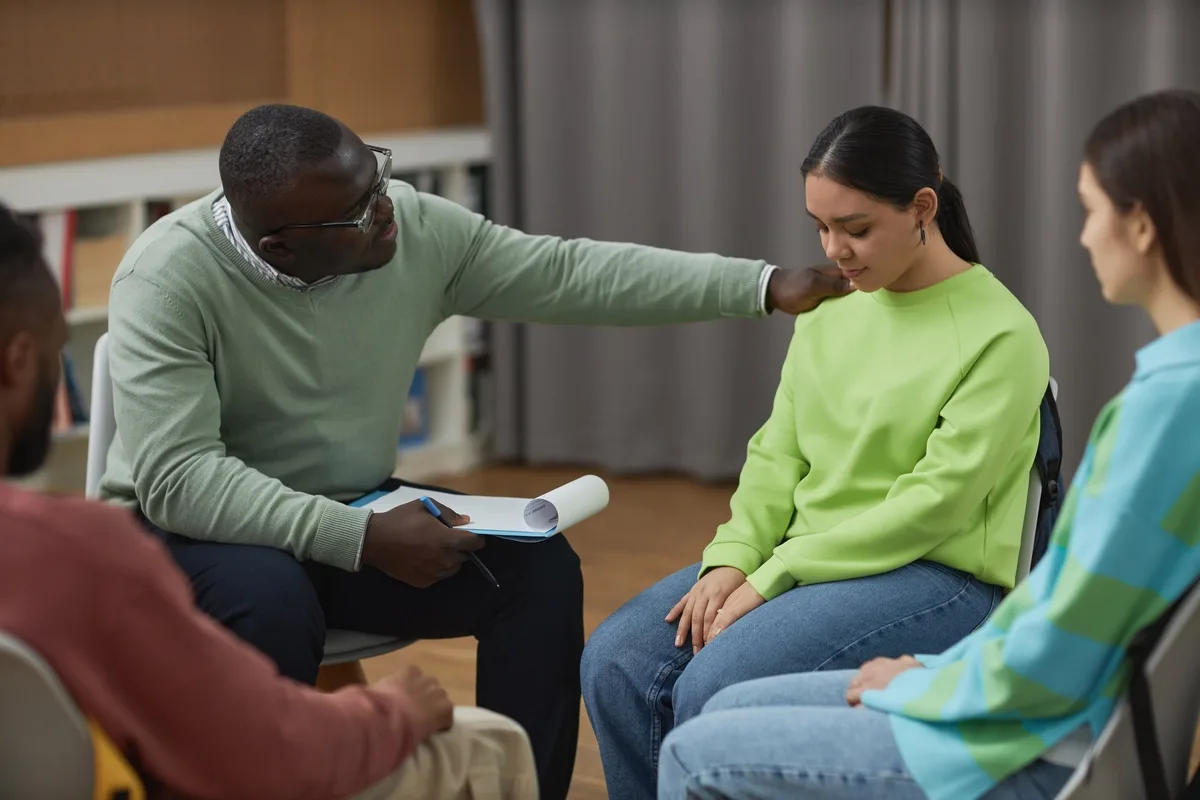24/7 Helpline:
(866) 899-221924/7 Helpline:
(866) 899-2219
Learn more about PTSD Rehab centers in Russiaville
PTSD Rehab in Other Cities

Other Insurance Options

MVP Healthcare

Health Net

Cigna

WellCare Health Plans

ComPsych

Health Choice

American Behavioral

MHNNet Behavioral Health

UMR

Private insurance

Regence

Highmark

Sutter

Group Health Incorporated

Multiplan

CareFirst

Oxford

Choice Care Network

Humana

Horizon Healthcare Service









The Gilead House
The Gilead House is a Non-Profit rehab center located in Indianapolis, IN. The Gilead House speciali...

Four County Counseling Center
4C Health Solutions is a dual diagnosis behavioral health treatment center located in Kokomo, IN. Wi...

First City Recovery Center
Freedom is within reach at First City Recovery Center. Based out of Kokomo, Indiana, FCRC offers a f...

Community Howard Behavioral Health Services
Community Howard Behavioral Health Services offers the complete realm of behavioral care to treat th...






























AA – Alcoholics Anonymous
AA – Alcoholics Anonymous is a private rehab located in Kokomo, Indiana. AA – Alcoholics Anonymous s...







